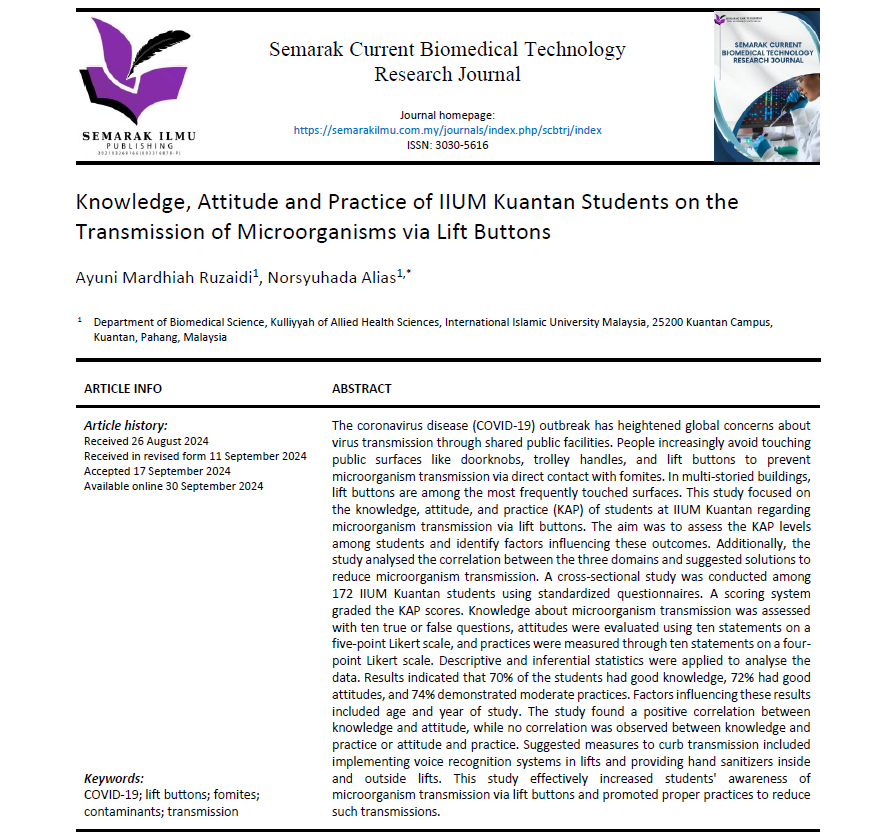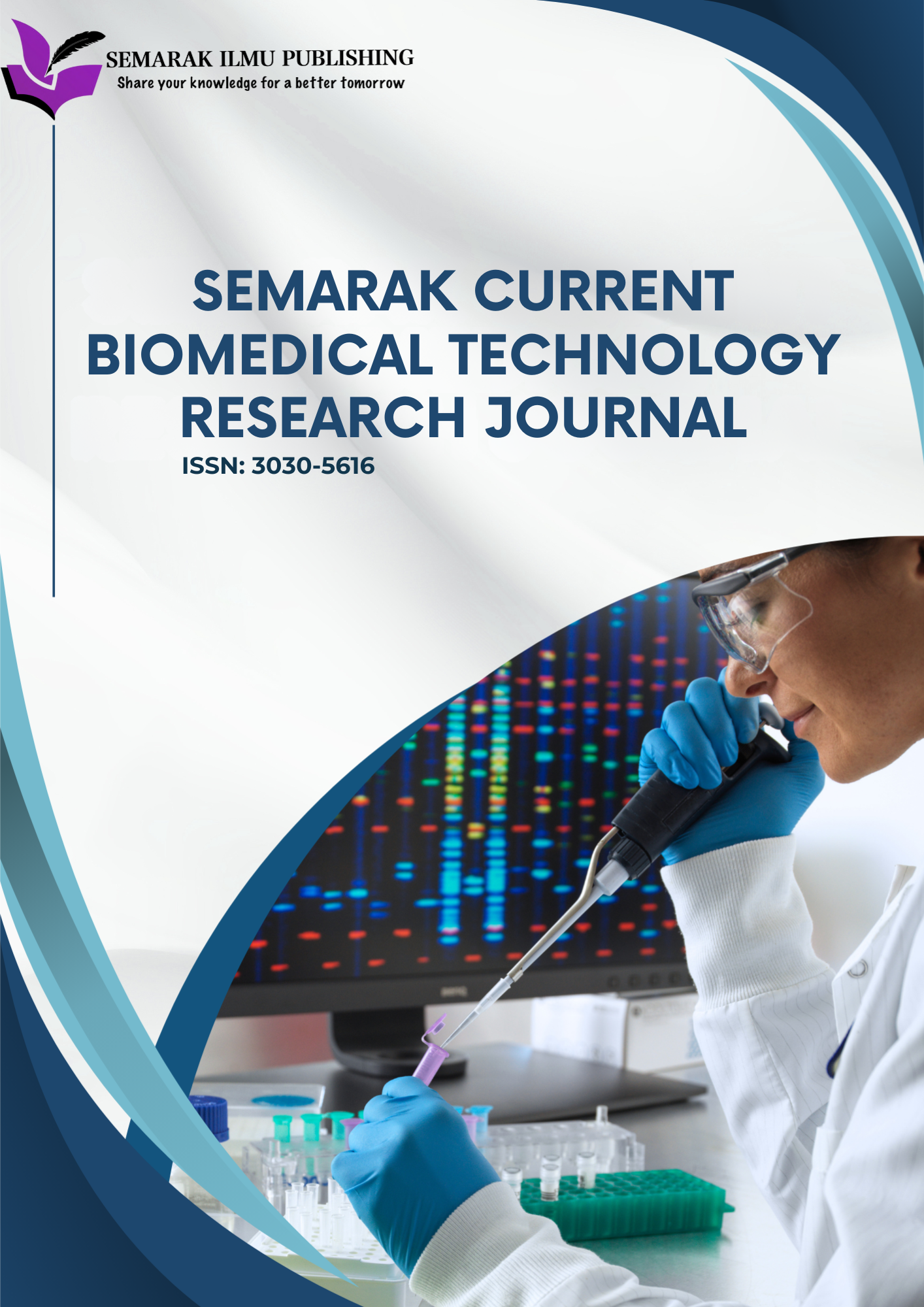Knowledge, Attitude and Practice of IIUM Kuantan Students on the Transmission of Microorganisms via Lift Buttons
DOI:
https://doi.org/10.37934/scbtrj.2.1.115Keywords:
COVID-19, lift buttons, fomites, contaminants, transmissionAbstract
The coronavirus disease (COVID-19) outbreak has heightened global concerns about virus transmission through shared public facilities. People increasingly avoid touching public surfaces like doorknobs, trolley handles, and lift buttons to prevent microorganism transmission via direct contact with fomites. In multi-storied buildings, lift buttons are among the most frequently touched surfaces. This study focused on the knowledge, attitude, and practice (KAP) of students at IIUM Kuantan regarding microorganism transmission via lift buttons. The aim was to assess the KAP levels among students and identify factors influencing these outcomes. Additionally, the study analysed the correlation between the three domains and suggested solutions to reduce microorganism transmission. A cross-sectional study was conducted among 172 IIUM Kuantan students using standardized questionnaires. A scoring system graded the KAP scores. Knowledge about microorganism transmission was assessed with ten true or false questions, attitudes were evaluated using ten statements on a five-point Likert scale, and practices were measured through ten statements on a four-point Likert scale. Descriptive and inferential statistics were applied to analyse the data. Results indicated that 70% of the students had good knowledge, 72% had good attitudes, and 74% demonstrated moderate practices. Factors influencing these results included age and year of study. The study found a positive correlation between knowledge and attitude, while no correlation was observed between knowledge and practice or attitude and practice. Suggested measures to curb transmission included implementing voice recognition systems in lifts and providing hand sanitizers inside and outside lifts. This study effectively increased students' awareness of microorganism transmission via lift buttons and promoted proper practices to reduce such transmissions.








